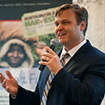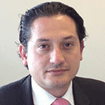M-Prize Winner
This story is one of ten winning entries in the Long-Term Capitalism Challenge, the third and final leg of the Harvard Business Review / McKinsey M Prize for Management Innovation.
Story:
Innovation in Well-Being—the Creation of Sustainable Value at Natura
At age 16, I was given this quote from a Plutonis, a philosopher: ‘The one is in the whole, the whole is in the one.’ That was a revelation to me. This notion of being part of a whole has never left me.
- Natura founder Luiz Seabra
Antonio Luiz da Cunha Seabra had little respect for the cosmetics industry. Dominated by mega-corporations that channeled billions into the creation of brands that promised eternal youth, built around products riddled with toxins, it was an industry built on lies. He founded Natura in a Sao Paolo garage in 1969 as a kind of antidote to that toxic approach—to “deliver cosmetics as a means for self-knowledge and promoter of well-being, powered by human relations as a way to express life.”
From the start, we have been intent on building a fundamentally different kind of company, one that succeeds in the marketplace not just while integrating the consideration of all of our stakeholders, but by integrating the interests and consideration of our people, our customers, our communities, and the natural environment. Our mantra of “bem estar bem”—“Well being/Being well”—reflects Seabra’s original vision and is infused throughout the culture and operations of the company today. That founding idea has inspired and guided our evolution over the past four decades—from the development of a unique approach to direct sales to our R&D process to our commitment to radical transparency and “truth in cosmetics” to our pioneering “integrated management model.”
Natura was born in 1969, the fruit of two passions: cosmetics and relationships. It sought to promote well being well – an expression that embodies its reason for being: to make people feel good about themselves, about others and about the natural environment and the whole of which we are part. It began as a small laboratory and cosmetics shop in 1969, in Sao Paolo, Brazil. Since 1974, the company uses direct sales as its commercial model. This means our products reach its consumers through a network of 1.4 million consultants (NCs) in Brazil and abroad.
To support this sales channel, there is almost 7 thousand employees working in Brazil, in its head office in Cajamar, São Paulo (São Paulo State), in five commercial offi ces – Salvador (Bahia), Campinas (São Paulo State), Alphaville (São Paulo State), Rio de Janeiro (Rio de Janeiro State) and Porto Alegre (Rio Grande do Sul State)–, in addition to plants and research and technology centers in Cajamar and in Benevides (Pará State) and eight distribution centers spread nationwide.Over the past four decades, the company has grown to become the leader of the Brazilian cosmetics and toiletries industry with 23.2% market share, consumer preference: 89% intend to buy our products and 68% actually acquired Natura brand products, resulting in 62% household penetration rate, and nearly 100% brand recognition. By 2009, Natura had overtaken global giants Unilever and Avon in the Brazilian market.
Natura has a portfolio of more than 700 premium products across eight segments: fragrances, make-up, skin treatments, sun creams, hair care, deoderants, soaps and shaving creams. A public company since 2004, Natura is listed on the BM&FBOVESPA New Market, a special segment of the Brazilian Stock Exchange with the most demanding levels of corporate governance. Natura has operations in Brazil, Argentina, Chile, Peru, Colombia, Mexico, and France, where the Company develops research into new technologies, trends and advances in the area of beauty and well-being. In 2011, Natura net revenues reached R$ 5,591 billion, a growth of 8.9%, EBITDA was R$ 1,425 billion, with an EBITDA margin of 25.5%, and net earnings of R$ 830 million, and margin of 14.9%. Its international operations showed vigorous growth, with 40% increase in net revenues in weighted local currency (35.4% in Reais); they now account for 9% of the business.
It’s not by accident that Natura is headquartered in one of the world’s largest and most socially and environmentally diverse nations. Brazil is the world’s fifth largest country both by area and by population. The population is ethnically and economically diverse and geography is equally varied and rich. Brazil’s bounty and its social and environmental vulnerabilities both inform our mission and strategy.
Natura’s innovative approach is rooted in Luiz Seabra’s founding philosophy. Although the pressures that come with growth and the proliferation of stakeholders have tested our founding principles, we have only re-asserted our commitment to innovating around well-being in the broadest sense of the term.
The eternal search for improvement is inherent to our existence. We believe that through the constant pursuit of innovation we will be promoting the development of individuals, our organization, and society as a whole. This approach to innovation is integral to our approach to sustainable development. We continue to focus on embedding innovation deeply and broadly in our business—not just in our scientific and technological research or in the development of new concepts and products, but in our business strategy, management systems, and relationships with all of our broader community.
Our vision of innovation is creates a stream of experiences of well being that exceed the expectations of our network of relationships. Innovation in Natura is integral and aims to promote permanent and inclusive learning processes.
One of the most recent examples of this innovation approach was the launch of Vôvó (grandpa/grandma) line of products in 2011. The brand was developed after research with grandparents and grandchildren by the team of scientific research on Well Being at Natura in collaboration with a multidisciplinary team of researchers in areas such as anthroposophy, psychology, positive psychology, linguistics and statistics.
Those specialists analyzed the importance of touch and dialogue to strengthen the relationship between generations. This is the first scientific study to show that the combination of massage and recreational activities has the potential to reduce the generational distance between grandparents and grandchildren.
The result is a line of products such as massage cream for hands and arms, deodorants and shower cream soap (more details at http://naturavovo.com.br/sobre.php). It includes an album of memories that encourages playful dialogue, storytelling and family closeness. The album is accompanied by a funny genealogy tree, postcards and envelopes. All products were created to encourage physical and emotional closeness between grandparents and grandchildren.
We understand innovation as a process that should cross permeate all our activities. It is at the core of our value creation and is expressed not only in our products, but also in our commercial model, management system and the relations we establish with our stakeholders and society as a whole. This dedication led us to be elected the 8th most innovative Company in the world by Forbes Magazine, in a survey published in July 2011. The only Brazilian Company ranked among the 50 most innovative companies, Natura was placed close to global icons in innovation such as Apple (5th place) and Google (7th place).
From the beginning, Natura has had a distinct and deeply-felt sense of purpose. We exist to create and sell products and services that promote Well Being/Being Well. Well Being is the harmonious, pleasant relationship that one has with oneself and one’s body. Being Well is the empathetic, successful, and gratifying relationship of a person with others, with nature of which they are part, and with the whole.
For most companies, profit is the salient goal. At Natura, our pursuit is greater well-being for all. The goal is to cultivate healthy, transparent, positive relationships—between the company and its stakeholders, between those individual stakeholders, between individuals and the whole. Everything is interdependent. We do everything we can as a company to behave accordingly.
The core idea of “bem estar bem” translates into four principles that guide our internal and external interactions:
1. Humanism:
Cultivate relationships and value them. Respect and stimulate human and individualism; this enriches diversity and contributes to society;
2. Balance:
Inspire harmony and the natural dynamic of mankind.
3. Transparency:
Conduct business in an open manner without ambiguity and discrimination. Seek quality. Recognize imperfections. Share questions and answers.
4. Creativity:
Dare to innovate. Pursue innovative relations with spirit, determination and passion, with the goal of continuous improvement, intuition, sensibility and knowledge.
After preparing our Vision 2030 (a document which projects the future and seeks to define the Company’s role in this new world) and Natura’s vision of innovation in 2010, we are now consolidating governance of the innovation process and deciding on our courses of action.
We refined the definition of our four innovation differentiators which, in alignment with strategic planning, guide the creative process and underpin research in science, technology and open innovation. These are strategic guidelines that include new competencies as well as classical science, resulting in a more integrated approach.
In addition to traditional methods, they encompass state-of-the-art science and technology, reduced socioenvironmental impact and our desire to create products that provide an ongoing fl ow of well being well experiences for our consumers.
Natura Innovation Differentiators:
_ Classical and Advanced Skin and Hair Sciences
_ Sustainable Technologies
_ Well-Being and Relationship Sciences
_ Senses, Design and Experiences
Some recent examples of our innovation capacity are such as the measurement of our water footprint and the launch of the Amazônia Program.
The threat of drinking water shortage represents one of the major threats to life on our planet. Consequently, what was already a major focus in reducing our product impacts became a priority for Natura when it revised its materiality matrix in 2010 and 2011. To identify the real impact our business has on water resources, two years ago Natura initiated a broad-based study throughout the production chain – from the extraction of raw materials used in manufacturing to final product disposal. This enabled the Company to measure the business’ main impacts, both in terms of water consumption and pollution potential. This study became Natura’s first water inventory. The methodology, also known as Water Footprint, was created by WFN, the first international organization devoted to promoting the sustainable, equitable and efficient use of water. Natura has partnered with WFN since 2009 and was the first Company in the cosmetics industry worldwide to apply this technology. We are also the only company in the world to include consumers product use in the inventory. In parallel, we invested in a series of initiatives to rationalize, reuse and treat the water used in our operations. This resulted in a 4.7% reduction in consumption per unit produced in 2011.
By recognizing the importance of the Amazon region for the country and Natura’s history in this region, we intend to use our brand to create sustainable development proposals for the region that will benefit its inhabitants and conserve the forest. Launched in 2011, the Amazônia program expands and reinforces this commitment with view at promoting new sustainable business based on science, innovation, production chains and local entrepreneurship. These initiatives will be focused on sociobiodiversity and valuing traditional knowledge and regional culture. Already in its fi rst year, the region was impacted by R$ 64.8 millions. As such, we defined three interrelated action fronts:
Science, Technology and Innovation – Following the open innovation model adopted by Natura more than five years ago, we aim to develop knowledge “in” the Amazon, “about” the Amazon and “for” the Amazon. We want to foster new research and to help local researchers and scientists remain in their region of origin. In 2012, we are going to build the Natura Knowledge and Innovation Center in Manaus, bringing together local and Natura’s researchers. Our target is to connect a network of more than one thousand researchers from diverse institutions by 2020.
Sustainable Production Chains – Natura should increase production in the Amazon in Benevides (Pará State), where a manufacturing plant exists since 2007. The set up of a new plant will begin in 2012 and will occupy a site area of 172 hectares. Our goal is to stimulate the formation of a network of local extractivist communities, encouraging the development of local production and social entrepreneurship. The purchase of materials from the Amazon is projected to grow from 11% to 30%, engaging 10 thousand families by 2020.
Institutional Reinforcement – Natura wishes to develop wide-range sustainable development plans and initiatives jointly with civil organizations, local governments, national and foreign companies, financial agents and other partners. An example of this kind of articulation was the definition of priority subjects for the Amazônia Program, which involved the collaboration of around 100 people from diverse backgrounds with experience in the features of Pará, Amazônia and neighboring States. This effort helped refine the program strategy and define our priorities: education; entrepreneurship; conservation, valuing and using biodiversity sustainability; social justice and citizenship; public policy and culture.
To develop these and other innovations, the Company invested between 2.5% and 3% of its net annual revenue in science, technology and the construction of knowledge networks. Investments in 2011 totaled R$ 146.6 million.
We also received tax incentives for innovation and promotion through partnerships with institutions such as FINEP, BNDES, NCPq and FAPs. In 2011, these incentives totaled more than R$ 11 million in reimbursable and non-reimbursable funding.
We monitor our innovation closely. It is currently at a level the Company considers optimal - between 55% and 65%. The index indicates the proportional contribution of new products launches within the last 24 months to Natura’s revenues.
INNOVATION INDICATORS
2009 2010 2011
Investment in innovation (R$ millions) 111,8 139,7 146,6
Percentage of net revenue invested in innovation (%) 2,6 2,8 2,7
Number of products launched (units) 103 168 164
Innovation rate (%) 67,6 65,7 64,8
These principles drive our fundamental product and operational decisions. We do not produce hair dyes or nail polish because of their inherent toxins and detrimental effects. We actively developed and sell a product line that honors the beauty of mature women. We source our products in a way that promotes the health of the environment and the livelihoods of local growers and producers. We practice openness as an organization and share information as widely as possible. And in our quest to advance the practice of sustainable development and the development of individuals and society as a whole, we continue to embed innovation into the fabric of the organization.
Expanding ‘bem estar bem’ through a Direct Sales Network
As Natura expanded in the 1970’s and 1980’s, the focus was on growing by investing in those healthy, mutually beneficial relationships. It was during this period that we launched our unique approach to direct sales.
The direct sales model was well suited to the Brazilian market, given the lack of department stores, and good job opportunities for women. We invest heavily in the training of the consultants (sales representatives). And we actually celebrate the fact that some 300,000 move on each year. We think of their time and experience at Natura as a launch pad for new achievements and contributions to the community. This not only strenghtens our society and economy—its a great way to spread the Natura values and philosophy.
Today we have a network of 1.4 million independent consultants (sales representatives) who are fiercely loyal to the company (even as they move on). Their median monthly salary is 16 times the national minimum. They share in the profits and ownership of the company.
Our direct-sales approach cultivates powerful relationships—with our consultants, with our customers, and with the communities in which they both live. There is a real pride in representing Natura’s ethical standards, our high quality products, and our support of broader social causes.
What’s more, the direct sales model provides vital input for our product development effort. It’s a real-time lens on our market and a robust channel of direct feedback, observations, ideas, and questions from our customers.
Developing an Integrated Management System and a Rigorous Approach to Reporting
In our quest to promote well being and to make real progress on what it means to be a company that grows and succeeds by serving the needs of all stakeholders—employees, customers, communities, and the natural environment—equally, we have developed what we call an “integrated management culture” and a rigorous approach to integrated reporting.
In the early 1990s we explicitly defined Natura’s purpose in terms of progress on economic, social, and environmental performance. In 2002, we formalized a Sustainability Committee to help guide and oversee these efforts, and soon thereafter we adopted specific corporate responsibility goals: (1) identify and expand the opportunities of responsible and sustainable management of the business; (2) warn about decisions and situations endangering the management coherence as far as sustainability is concerned; (3) align and give coherence to the internal and external actions for a more sympathetic and sustainable society.
Achieving these goals requires the cultivation of a continuous feedback loop between internal and external stakeholders and management. That loop includes:
An Integrated Management Culture: We work hard to embed environmental, social, and economic concerns equally in all our actions and decisions. All three categories figure in the determination of managers’ performance ratings and bonuses.
For instance, Natura recently had to choose whether or not to continue to use commonly available synthetic alcohol as a key raw material in its manufacturing process. The alternative option: a more environmentally friendly organic alcohol. Based solely on traditional economic criteria, analyses showed that organic alcohol was 30 percent more expensive. However, once environmental and social externalities were included, the cost of synthetic product was in fact higher.
Key Performance Indicators: We define key performance indicators and management targets for economic, social, and environmental performance.
Even the way designed to recognize and reward Natura’s executives for their performance and results during the year, takes in consideration the triple bottom line concept. The Profit Share System for management consists in the payment of monthly salary multiples in accordance with the executive’s position in the organizational structure and is linked to the effective achievement of targets and minimum growth levels established for the year. The criteria reflect performance in the triple bottom line dimensions:
_ Economic – Consolidated Ebitda, covering Brazil and international operations;
_ Social – Organizational climate survey for employees in the Brazilian and international operations and loyalty rate for Brazilian consultants;
_ Environmental – Carbon emissions in Brazil and in the international operations;
_ Others – Product shortage, the percentage of products not available when ordered by consultants.
The Global Reporting Initiative (GRI) framework provides a list of internationally developed reporting indicators. In some situations, new measurement processes needed to be developed to enable proper performance measurement. In other cases, the information is available, but might reside in different parts of the organization. Integration between the different parts of the organization is often needed.
Reporting and Communications: Transparent communications to stakeholders about the company’s financial and non-financial performance helps grow a strong company and cultivate trust among investors and the community at large.
The value of transparency is threaded through all of our customer communications and our entire approach to marketing. Our mantra is: “truth in cosmetics.” Since 1990, we have featured real customers, mature women over the age of 30, as models (many years before Dove’s “real beauty” campaign). This goes directly back to our fundational purpose—to promote well being, a harmonious relationship with yourself and your body, and beauty as defined by good health rather than some artificial standard of perfection.
Stakeholder Dialogue: Integrated reporting requires feedback from a varied group of stakeholders. Broader engagement is necessary to better understand the company’s true impacts on the community and the environment.
We have established a frequent, rigorous and transparent means of collecting stakeholder feedback. A network of relationship managers works continually with suppliers, the direct sales force and communities throughout Brazil. “Stakeholder Engagement Panels” and “Roundtable Discussions” are held regularly to debate a range of issues facing the organization and society. The information from our managers and the forums is recorded and publicly posted. It’s used for internal product development and planning efforts.
We innovate and invest heavily in interacting with our community through social networks. Natura Conecta (naturaconecta.educartis.com) enhances the engagement process with a variety of audiences, strengthens bond,s and increases the rhythm of the collaborative construction of future paths.
Embedding Innovation in the Organization
We believe in innovation as a central, strategic, continuous pursuit. We invest about 3% of our annual net revenues in research (R$111.8 million last year), development and innovation activities. In 2009 we have introduced 103 items to the market (including new and relaunched products) among the 685 products in our portfolio.
We focus our creative energies on the intersection between scientific and technological knowledge, the dynamic evolution in people’s behavior, and most important, the preserving and leveraging the abundance of Brazilian biodiversity.
As a measure of how important our focus on innovating in well-being is, we created an “Innovation Index” to measure the direct impact of our innovation efforts on business results. The index is calculated based on the revenues created by products launched in the past two years. The Innovation Index is part of our balanced scorecard, and is monitored on a monthly basis. It is linked to short-term variable compensation (profit sharing program) of executives involved in the product innovation process. Last year our Innovation Index was at 67.6%.
The Innovation Process at Natura: Agility and Autonomy
The Natura management system itself is a driver of our innovation process. In recent years, we have been focused on the promotion of an increasingly agile and decentralized structure, embedding a common understanding of our innovation processes among all of our collaborators (ensuring every individual has the confidence to step up and innovate), and strengthening our relationships with a broader collaborative community. All of this contributes to a continuously innovative and active posture toward promoting social change and well-being.
In 2008 we carried out a restructuring process aimed at making the organization more horizontal, and prioritizing processes and relationships over functions and hierarchy. We reduced layers of control and added more agility and autonomy to decision making. After the restructuring, we began the implementation of process-based management.
Each of our four business units has a product development manager. Their role is to establish a connection between the business unit, the product and packaging development team, and the science and technology team. They bring marketing information, end-consumer needs and the concepts of products we would like to develop for the product development and research teams. It’s a way to bring these areas closer to each other. This manager also maximizes interaction with the “Innovation Funnel” (our portfolio of projects under development) and multi-department teams.
In addition to the development manager, each business unit gathers representatives from several areas reporting to the headquarters. That guarantees interaction between the areas on the strategic and the operational levels, by means of project teams, which are composed of people from different departments. In turn, the teams meet frequently to monitor the progress, exchange experiences, and contribute with different perspectives on solutions and risks. We also have Innovation Committees in each business unit, composed of the business unit director and managers reporting directly to them, which holds meetings on a monthly basis to discuss projects under development or projects that are already in the “Product Funnel” (new concepts and our product development process) and portfolios.
From the simplest of ideas to the most complex assets, initiatives that might result into a new product go through the Technology Funnel and the Innovation Funnel, two processes focused on different things, yet aligned and with permanent communication between them. The Innovation Vice Presidency is responsible for these two systems.
The Technology Funnel includes the process of identification, research and development of new raw materials and inputs (especially those found in Brazil’s biodiversity) new materials and packaging technologies, non-invasive and alternative methodologies for the use of animals in proving the efficacy and safety of our products, objective proof of well-being, and methodologies for measuring the environmental impact. This is an ongoing, long-term and high-risk process, but it is central and strategic for Natura.
The Innovation Funnel includes the development of new concepts and products from the identification of needs and market opportunities. The new products come from technologies developed in-house or obtained by means of external partnerships, with the goal of applying them to new products and packages. This is a short-term process, featuring lower-risk and defined projects, much closer to the end consumer.
The innovation process has been designed at many levels, having as its sub processes the Technology Funnel and the Product Funnel (each of them with the following sub processes: portfolio management, pipeline management, project management, network management and knowledge management), in addition to the Ideas and Concepts Funnel. The Ideas and Concepts Funnel is the process of generating new ideas and preparing the grounds for innovation. It aims at creating fragments of ideas, consolidating them through the collaboration of the widespread network, and applying different assessment filters (depending on the nature of the proposal) so that they can be turned into new projects for new markets, new consumers and even new businesses.
To support our process implementation and guarantee its efficiency, we created input, processing, and output metrics, which we assess in a monthly process performance management ritual. These metrics allow the monitoring of the process itself as well as the value captured by the process. All process owners and guardians are being trained in the indicators and metrics analysis methodologies and on the creation of action plans.
In addition to increasing the interaction between innovation areas and other areas of the company, our aim has been to create more agility in our information flow, promote more autonomy among collaborators, and increase the strategic alignment between innovation and the business.
Much of the mapping, design, and revision of the Natura innovation process took place in 2009. We approached this as a collaborative process, engaging all of the players and allowing the innovation collaborators to feel like they owned the process and that it was their responsibility.
Along with the collaborative design of the process, a training program was developed to embed the approach in our culture. In granting more autonomy—and, consequently, more responsibility—it was crucial to support the development of new interpersonal relationship skills, and a better understanding of the business. We are dedicated to constantly improving the training approach and the innovation process via feedback from these same players.
Training in innovation is a major priority at Natura and is carried out in an integrated fashion in order to enable dynamic, continuous and efficient innovation. We constantly search for innovation methodologies that can complement the works being developed. We are partners with the most important international education centers to keep up with the latest market trends. In addition, with the assistance of renowned educational institutions we have created the Natura Innovation Academy with the purpose of educating all collaborators on topics related to innovation and establishing an inspiring and creative environment. The Innovation Academy courses were designed according to the innovation standards created by the Global Innovation Management Institute (GIMI). The courses are focused on three key areas: innovation strategy; innovation capacity; and organizational and leadership culture, necessary to nurture innovations. In an activity similar to that of the Center for Innovation, Excellence and Leadership – IXL Center, in Cambridge, MA, we have developed a groundbreaking “Blended-Action Learning Program”, where we had internal training on innovation based on a variety of in-person (offline) and virtual (online) teaching methods.
We also established a new IT infrastructure level with information sharing tools that support and accelerate the communication flow between project. Innovation leaders also hold monthly meetings and workshops focused on creating a standardized innovation language throughout Natura. And we created an Innovation Management Certificate for different levels, covering all aspects of innovation and leadership management focused on the practice.
We aim to become a model in innovation education through developing learning strategies that lead people to perceive their own experiences, their everyday life, and their knowledge as an opportunity to transform and create new things.
Innovation Management
Natura has a governance model structured to manage innovation. It was upgraded in 2011 after the creation of the Ideas and Concepts Committee, which is focused on ideas for the long term. In our business routine, we work on four major fronts:
Research and Technology; Product Development; Consumer Safety; and Partnerships and Promotion.
Management of the product funnel, the process for introducing new projects and proposals, was also refined. We increased the level of detail and specifications required for initiating a project or to develop a product. With well defined criteria, we drove efficiency, investing only in projects that truly add value to the brand. In this framework, value is understood in its broadest sense, including brand, environmental footprint and other benefits. This means that all new products must have attributes that strengthen our market presence, such as providing a new experience for consumers and having an environmental impact which is the same or lower than that of a similar product.
Commercial Innovation
In tune with transformations in the business environment, the Company has also identifi ed opportunities to innovate our direct selling model in Brazil and abroad. E-commerce has transformed relations between companies and consumers, who are more and more willing to access their preferred products in different ways. We anticipate a huge potential in digital media.
In the communication with our sales channel, we have noted growing interest in our digital media. The digital Revista Natura has grown around 30% in user numbers, reaching 300,000 single visitors in the last cycle. Three million accesses were counted throughout the year. In 2011 we launched the digital version for tablets (iPad and other models). We also integrated production of communication materials for the international operations, in a more efficient manner, centralizing that production in Buenos Aires. This means that any advance in Brazil may be more rapidly incorporated in the other Latin American countries.
The evolution of our commercial model has been continuous. Three years ago the Company created the Natura Consultant Advisor (NCA), and more recently the Sustainable Relationship Network, developed especially for the Mexican market.
Ideas from Everywhere: Open Innovation at Natura
We believe good ideas can come from anywhere—both inside and outside the organization. In our search for radical innovation, we’ve invested in developing a range of a open innovation approaches, engaging with universities, academic research and technology centers (STCs), and companies in Brazil and throughout the world.
For ideas and innovation sourced from inside the company, we developed an innovation incubator, “Innovation in Motion,” as a structured and objective process for managing entrepreneurial projects. In this program, collaborators individually or in groups write down their ideas and prepare a business plan. Other collaborators, such as fictional investors, support the ideas they consider to have the most innovation potential. Winning projects are awarded and may have their implementation supported. The innovation area has received over 200 projects from our collaborators to date—25 of them were considered relevant for to the company’s current direction and five of them are currently in development.
When it comes to ideas and contributions from outside the company, we pursue a number of activities. In 2006, we created a structured program of cooperative partnerships between Natura’s scientific and technological research operation and STCs throughout the world.
In 2009 we’ve implemented the Scientific Committees in the Science and Technology Management (area responsible for developing new raw materials and technologies to be applied to products), with the participation of Natura researchers, members of the Brazilian and international Academia and market experts, who meet on a monthly basis to discuss technological and social trends for the future. This has been a powerful experience in bringing Natura closer to the scientific community when it comes to topics related to sustainability, natural products, green processes, well-being and company-university partnerships.
The work with partners is part of the Natura Technological Innovation Campus Program created in 2007, which counts on the support by the National Council for Scientific and Technological Development (CNPq), the São Paulo Research Foundation (FAPESP) and the Brazilian Innovation Agency (FINEP). The institutions contribute with the joint financing of select projects, allowing investments for the acquisition of equipment and inputs for research works carried out by partner laboratories and grants for undergraduate and graduate research programs.
An important tool for this program is the Natura Campus Portal (www.natura.net/campus), established in 2007. Today we have some 262 research groups affiliated with 95 scientific and technological institutions in the network. Reorganized last year, it is designed to encourage interaction among users, connectivity with the social networks and to diversify the means for building knowledge networks. Part of our open innovation strategy, the portal provides information on science, technology and innovation. It hosts blogs and interactive communication tools enabling researchers to contact Natura and the entire network. Users have access to the program’s relationship agenda, information on relevant activities and events organized by Natura and partners, and data from research and case studies we perform, reinforcing our commitment to share learning and driving new research. In 2011, we made presentations to more than 500 people and recorded more than 4,400 accesses to the portal. More than 100 researchers have newly enrolled in the program.
Among the topics we have prioritized last year are sustainable technologies, product efficacy and safety, well-being and the sensorial dimensions of our products. Every two years we recognize publicly and financially the best research project partnership with the Technological Innovation Award. In 2008, the Passiflora project by UFSC (Federal Universtiy – Santa Catarina Campus) was one of the three winners of the Natura Campus Technological Innovation Award. The project was the first technological application resulting from open partnerships at Natura and it studied the cosmetic properties of flavonoids obtained from Passiflora alata, a plant found in the Brazilian biodiversity. This project gave birth to Chronos Flavonóides de Passiflora, a hit in the anti-aging range produced by the company. (In 1986, we launched a skincare line called Chronos that celebrated the beauty and vitality of mature women. We were the first in Brazil to promote cell renewal. This line exceeded the company's own expectations by accounting for sales of 90,000 units in scarcely its first month and a half. Besides the products directed to different ages, from women from 30+ to 60+, Chronos gained a new line of anti wrinkles products. The first one in Brazil indicated for women with more than 70 years old, the Natura Chronos 70+ with the new formula HydraPro® and also UVA filter (PPB) and increased UVB protection with SPF 30.
It is inherent to Natura’s culture to try to achieve the highest standards and to be ahead of its time. Another example of that DNA is our pioneering approach to leveraging Brazilian biodiversity as a source for innovation, even as we build the capabilities and opportunities of local producers and instill the ethos of sustainability in the wider community. Over the past decade we have developed nine completely new essential oils wholly derived from the Brazilian biodiversity.
In 2000, we launched our flagship Ekos brand. The Ekos line consists of a range of body-care products made from exotic fruits, roots, and nuts. The raw materials come from the Amazon rainforest and other Brazilian forests or small, traditional plantations. The indigenous products offer an alternative to the destruction of fragile environments by the clearing of forests for the logging of tropical timber or for mining, cattle raising, or intensive farming of soybeans and other cash crops. We source all of our materials in a way preserves the environment and builds the local community.
Leadership and development
We invest in continuous leadership development to ensure our managers share the company’s values and model of behavior we seek from our employees and other audiences, inspiring and mobilizing our relationship network.
Due to the company’s growth and need to prepare successors, three years ago we started a program aimed at developing talents and preparing future leaders. Since then, we have invested in engagement initiatives, organizational competency and leadership training, offering scholarships for MBAs and mentoring and coaching programs. This has had a direct impact on internal promotions, which increased from 62% to 68% in the leadership positions last year.
In 2011, the Company launched the Cosmos Program, the main development front for Natura’s leaders. Comprising four levels, it involves all the company’s 600 managers in Brazil and the international operations. The first dimension is called “school” and consists of talks and workshops on management, organizational dynamics and sustainability. The classes were given by international specialists and were attended by 225 managers. Another two Cosmos dimensions involve exchanging experiences (brotherhood) and connecting ideas and people (communities of interest). The final stage or workshop, consists of applying what has been learned in business related projects. Cosmos was the result of a collaborative process in which more than 80 people were involved, including Natura staff, the Board of Directors, the Executive Committee, as well as external consultants.
In parallel, we have invested heavily in succession plans for all the company’s critical positions. This enabled us to end 2011 with short, medium and long term successors identified for 62% of these positions, compared with 40% in 2010.
Also in 2011 we undertook the first international selection for the trainee program, including all the countries in which we operate. The medium to long-term objective is to develop global leaders and talents.
Natura has also a Performance Management Program for all its employees and operations. The program enables all employees, regardless of gender, to effectively manage their performance through feedback and structured individual development plans. Moreover, employees receive full feedback on their performance, including self assessment, the perceptions of managers, peers, partners and subordinates. This analysis is designed to assess employees’ adherence to Natura’s essence and organizational culture.
Promoting wellness beyond our own business
Our focus is not limited to our own corporate ecosystem. We see that we have an important role and responsibility to larger society.
Most of our social projects come from Natura Movement which work to raise consultants’ awareness and rally them to propagate our beliefs and vision of the world. We want to drive an individual and collective transformation process in our consultants (sales representatives). We want them to become agents of transformation in the communities they live in. To do this, we encourage them to get involved in socio-environmental actions, on their own initiative or in partnership with other organizations.
In 2011, almost 123,000 consultants were engaged in 11 Natura Movement projects nationwide. The numbers show an incredible capacity to involve consultants in the movement, almost double the 2009 result, when monitoring was initiated. Even so, this fi gure was below our target of involving 135,000 NCs in the projects in 2011. This shortfall, however, may be attributed to overall business performance during the year.
The main Natura Movement initiatives during the year included the Acolher Program. This is a pioneering social entrepreneurship scheme that identifies, recognizes and encourages Consultants engaged in socioenvironmental actions nationwide. NCs participating in the program form a large network through which they exchange experience and are eligible for technical and fi nancial support for their activities. In 2011, 18 consultants from 16 cities were selected to receive this support from more than 1,500 applications. The initiatives undertaken include recycling cooperatives, the manufacture of disposable diapers for children and sick adults, community nurseries, reading initiatives, social inclusion of the disabled and support for needy children.
The Acolher program is divided into two categories: “Seed” for incipient initiatives and “Growth” for more established ones. Consultants receive grants of R$ 5,000 and R$ 15,000 respectively, as well as technical support to drive their development as social entrepreneurs.
The Natura Movement website (www.movimentonatura.com.br) provides support for this work. The site contains videos and information on social entrepreneurship and enables interaction among users. A total of 2,922 NCs are enrolled to participate in the Acolher network.
We also invested in publicizing these initiatives with the set up of the category Natura Inspiring Consultant in the CLÁUDIA Award organized by the magazine CLÁUDIA. The consultants recognized in the Acolher Program are eligible for this award. Moreover, Natura established a partnership with the Rede Record TV network program Hoje em Dia, which has a section that translates as Inspiring Women. The stories of consultants participating in the Acolher program are presented in this section.
Since 2007, Natura has been involved in social work in the Rio de Janeiro communities. Based on this experience, the Company created the Communities project in 2011. Developed in the Cidade de Deus and Complexo do Alemão districts, the project is aimed at people wishing to become NCs and takes advantage of these new consultants’ interest to encourage them to get involved in social work that will transform their communities.
The first step was research in these districts. We realized that many people wishing to work as Consultants had questions that hampered them from getting started. Consequently, we made the rules for registration more flexible, admitting persons with protested debts of up to R$ 500, thus increasing enrollment by 75%.
We also established a partnership with the Banco Santander for the provision of microcredit and financial education courses for the consultants. In 2012, we will expand the project to a further 20 communities where so-called police pacification units or UPPs are in place. Part of the revenue generated will be reinvested in projects in these communities using the Acolher Program methodology.
Natura also supplies free products for use in hairdressing and make up vocational courses offered by Faetec, as well as supporting actions designed to promote women’s self-esteem through dance and makeup sessions in partnership with the cultural group Afroreggae.
The Instituto Natura is a non-profit organization created in 2010 to expand and strengthen our private social investment initiatives. The institute has enabled us to leverage our efforts and investments in measures that improve the quality of public education. The main achievement of the institute to date has been the partnership formalized with the Ministry of Education in 2011 to transform the Trilhas project into public policy. Executed by the Instituto Natura under the technical coordination of Cedac (Comunidade Educativa), Trilhas is a methodology to encourage 6 year-old children to read, write and speak. The initiative consists of teaching techniques, materials and practical support for teachers and principals in the participating schools, furthering the development of students beginning to acquire literacy skills. The partnership with the Ministry of Education should benefi t more than 3 million students in 3 thousand municipalities as of 2012.
The Instituto Natura’s main source of funding is the Natura Crer para Ver (To Believe is to See) program – a special non-cosmetic product line which earnings go to the institute. Neither Natura nor the Consultants earn money from sales of this line. In 2011, sales from the Crer para Ver line were R$ 8.4 million, coming in below target. Although lower than the record sales in 2010, the volume was still twice that of 2009.
We see our responsibility to be more than a healthy, profitable business. We see ourselves as world citizens and stewards of positive change.
Challenge: Radically rethinking our management model
We witness the confirmation that our world will be unsustainable if current trends of production, global consumption and socio-environmental imbalances continue. The wave of events n recent years says a lot: in 2006, the awareness of global warming risks caused by man came into being; two years later, we lived through the hardships of an economic crisis, which have one thing in common: the quest for a fairer and equalitarian society. We believe that only a deep transformation based on ethics of life, in which new development logics and revigorated global governance prevail over and above the interests of religions, countries, economic groups, will be a source of hope for future generations and for man to continue existing on Earth.
If on the one hand this scenario is troubling, on the other hand it reasserts our determination to make our best emotional and intellectual efforts for Natura to act increasingly as agent of necessary social change, always managed in accordance with the principles of sustainability, in the search for the best results – in an integrated manner – in the economic, social and environmental dimensions. This corporate behavior which is in harmony with society’s aspirations, means we simply must take Natura and its proposed values to new heights and frontiers. Today, Brazil and Latina America, our main operating markets, are in a privileged position. Though not immune to the effects of a tougher international environment, they are less likely to be adversely affected by global upheavals. The economic rise of an important section of the population – with women playing a particularly prominent role – seems to have a wingspan that will be able to foster a long and promising cycle of development, albeit far from a sustainable development, fostering full social inclusion, broadening distribution of wealth and mitigating environmental impacts. Our greatest challenge will be to put together the new technologies with hearts attuned to the same cause.
Challenge: Inventing a wholly new integrated reporting framework
We developed different forms of discussion with view at presenting Natura’s performance to stakeholders as completely as possible and enabling them to assess the Company’s progress. For this reason, for 12 years Natura has issued its annual sustainability report in accordance with the Global Reporting Initiative (GRI) guidelines and for the last ten years the Company has published its sustainability report and annual (financial) report as a single document. Every year we seek to improve this process by providing complete data in perspective that is widely accessible to anyone interested in the Company.
In this year’s Natura Report, we have refined both the format and the language of the publication. In the discussion panels held in 2010 and 2011 our stakeholders expressed the wish for a more concise content and a lighter format. The information in the print version, for example, is more objective and was developed with the input of Natura stakeholders. The complete annual report with more detailed information is available for download in PDF format website www.natura.net/relatorio. There is also an Ipad application available in Itunes. The financial data were audited by the Consulting Company Deloitte Touche Tohmatsu Auditores Independentes, while the GRI indicators and AccountAbility AA1000 Standards were assured by Ernst & Young Terco Auditores Independentes S.S. The consultancy KPMG also provided a limited assurance of the company’s greenhouse gas (GHG) emission data in the 2011 inventory.
The integrated report, a global trend, is aimed not only at combining financial and non-financial documents in the same publication but at reflecting a business strategy that incorporates all dimensions of the business in its management and analysis of risks and opportunities. To learn and to grow in this area, Natura is involved in the main global forums discussing integrated reporting. It sponsors the development of the fourth generation of GRI indicators, designed to further integrate financial and non-financial information. The Company also participates in the International Integrated Reporting Council (IIRC), comprising global leaders of companies, investors, academic institutions, industry associations, regulatory and standardization bodies seeking to create a global standard for integrated reports.
The IIRC global committee is engaged in defining global indicators and principles. Natura is one of the companies involved in the pilot project, and this report is aligned with the initial framework set forth by the IIRC.
Challenge: motivating sustainable supply chains
Is not easy to carry on with our beliefs and initiatives if our supply chains are not in accordance with our vision and ambitions. But it is still an enormous challenge for Natura. In 2011 Natura set up the Company’s Sustainable Supply Chain strategy. Based on innovative methodology, it enables Natura to take into account the real value of socio-environmental aspects in the selection of suppliers and in establishing development plans to ensure an increasingly efficient and sustainable production chain. Initiated in 2010 in partnership with international specialists and the suppliers themselves, the initiative was supported by the mapping of potential socio-environmental impacts caused by the chain and calculating the cost of preventing or mitigating these impacts. In 2011, the program was implemented: we included the following indicators in the purchasing criteria: environmental (carbon emissions, water consumption, solid waste generation) and social (investment in education, training, the inclusion of disabled people and occupational safety). Applied in the selection of new vendors and in the review of the existing packaging, third-party manufacture and logistics supplier base, the system brought gains in the three sustainability pillars: economic, social and environmental. The methodology was applied to 60% of our purchases measured by value. We closed supply contracts in which these partners committed to improving their socio-environmental performance during the next three years. This is expected to generate approximately R$ 2 million a year in socio-environmental improvements by 2014. Since these improvements will be multiplied throughout the suppliers’ operations, the impact for society will be worth approximately R$ 20 million during the period.
We initiated the second phase of the program in 2011, extending the methodology to service and indirect input suppliers. As in the first phase, this involved meeting with these partners to map their impacts. The process should be completed in 2012 and should include the suppliers in the international operations. We consider this initiative as a consistent evolution of the triple bottom line management system, leveraging the socio-environmental potential of our supply chain. Worthy of note is the engagement of our suppliers. The Company firmly believes in the multiplying effect of this measure, because any improvement implemented by our partners should boost their overall performance and should not be restricted to their dealings with Natura.
Our supplier development program Qlicar (the Portuguese acronym for Quality, Logistics, Innovation, Competitiveness, Environment, Social and Relationship) was upgraded last year. In 2011, we reinforced critical service level indicators and included social parameters aligned with our sustainable supply chain strategy in the monitoring. Where we previously monitored only water and energy consumption, CO2 emissions and solid waste generation, we now require data on investment in employees’ education, occupational safety, social inclusion and community investment. Rather than just reporting this information, our suppliers should now be assessed based on the progress in these indicators. The number of participants in Qlicar was also increased to 122 suppliers of inputs, finished products, logistics, brand-related services and services to consultants.
In line with our proposal to increase transparency throughout the value chain, since 2010 we have supported the Global Reporting Initiative (GRI) GANTSCh (Global Action Network for Transparency in the Supply Chain) training program to encourage sustainability reporting in the supply chain. In Brazil, the program is administered by Aberje (the Brazilian Business Communication Association) and entails workshops and different activities.
We invited some small and mid-sized suppliers to participate and seven accepted in 2011. At the end of the program, these partners will be prepared to publish a GRI standard sustainability report. It should be noted that 100% of the contracts we sign with suppliers contain human rights clauses, covering issues such as child, forced and slave labor. In 2011, we signed 36 new contracts worth some R$ 5 million. In 2011, 219 suppliers underwent self-assessment procedures and 82% of them were submitted to periodic audits covering aspects of quality, environment and social responsibility, including human rights.
To stimulate the development of the suppliers’ local communities and the areas around them, we have a specific company-funded promotion program. One of these initiatives was the creation of the Médio Juruá, Amazon region Fund in partnership with the Conselho Nacional de Populações Extrativistas (National Extractivist Populations Council), with support from the Instituto Chico Mendes de Conservação da Biodiversidade (Chico Medes Conservation and Biodiversity Institute - ICMBio) and the Centro Estadual de Unidades de Conservação do Estado do Amazonas (Amazonas State Conservation Unit Center). The fund selects projects proposed by organizations in the region based on four action fronts: building citizenship, education and health; food security and income generation; environmental conservation and preservation; associative reinforcement and market diversification. The aim is to enable organizations such as the Médio Juruá Extractivist Reserve to seek alternative sources of income for workers and to obtain project financing. The fund’s first call to tender was issued in 2011. Natura also assisted the organizations by training them to prepare their applications in line with the required criteria. As a result of our institutional and technical reinforcement initiatives in the Médio Juruá, Amazon region community, the quality of the materials gathered and andiroba and murumuru processing has improved. This in turn improves relations and increases family incomes.
Challenge: More transparent and ethical communication
We believe that in addition to promoting our products, Natura’s advertisements, commercials and other communications should provide clear information and raise consumer awareness. This is backed by the company’s Ethical Communication Guidelines manual. The document is for employees and suppliers involved in Natura communication processes and sets forth the principles underlying all communication campaigns and actions. These include questions such as product environmental impact, conscious consumption, non-invasive communication, respect for children, promoting dialogue and co-creation, as well as valuing diversity, clarity, self-reflection and the truth. We are also compliant with the standards set forth by the Advertising Self-Regulatory body Conar and the codes of conduct of the Brazilian Advertisers Association, the Brazilian Consumer Defense Association and the Brazilian Direct Selling Association. These regulations are used as guidelines for all our communications. In 2011, we received no notices for breaches of regulations, laws and voluntary codes in connection with marketing communication, including advertising, promotion and sponsorship.
Natura’s model has generated a number of benefits:
- Demonstration that a company does not have to make trade-offs between doing good and doing well
- Integrated reporting capability is helping the company better navigate tough business decisions
- High financial return to shareholders, employees, and other stakeholders through sustainable development
- Providing consumers with cosmetics that enhance their well-being and sense of themselves
- Taking care of the quality of the relationships as well as its products and services the companies may use the force and potential of its networks in order to benefit everyone engaged with the same values, being profitable at the same time
- Development of integrated reporting tools and processes that can be adopted by other companies in a triple bottom line basis
- Support of local economies and the areas around them. Programs developed generates funds that are invested in projects that foster the social reinforcement of the communities, as well as environmental conservation, cultural reinforcement, the creation of alternative sources of income, food security, interaction with external bodies and leadership development
- Development of female workforce and capability in Brazil through direct sales entrepreneurship
In the last five years we have spurted profound changes at Natura. The Company practically doubled in size between 2007 and 2011, and our results prove the consistency of our strategy: the number of Consultants increased from 718 thousand to 1.4 million, boosting product orders from 9 million to a telling 17 million a year; Ebitda rose from R$ 700 million to R$ 1.4 billion, with net revenue increasing from R$ 3 billion to R$ 5 billion. International operations increased their share from 4.4% to 9%. To support this growth, we understood that a completely reformulated logistics model and attracting new leaders fully aligned with our business culture and conduct would be mandatory. So that, we set up a management system based on Business Units and Regional Units, and we continued to invest in innovation, in the conception of our products, in managing our environmental impacts and in our commercial model.
Infrastructure is another essential issue to be considered and in 2011, we made our biggest investment ever, worth around R$ 350 million to expand production, develop our logistics model and improve information technology, that are essential for sustaining our growth. We worked on bringing about a step change in infrastructure to increasingly streamline delivery of our products to consultants, at a reduced cost per order and lower greenhouse gases emissions.
We are aware that the simultaneous set up of new capture of orders systems, changes in the logistics model and the opening of new distribution centers affected our operations, service quality and relations and it impacted negatively on our results, which were below expectations. It gave us another lesson, that we had to have planning adjustments during the year. We intend to increase the impact of our promotions, setting a better balance between central and regional promotions. We are convinced that the infrastructure modifications in progress will enable us to reach service levels capable of boosting our brand’s competitive differentials.
The year also brought new opportunities. After a period of significant expansion through growth in the sales channel that increased product penetration from 40% to 60% in Brazilian homes, we identified an opportunity to modify our strategy. Our focus is now on boosting our Consultants’ productivity by persuading consumers to buy a greater variety of products more frequently. After all, ours is the top brand in the market, and our Consultants connect with 100 million consumers.
We continue to be enthusiastic about the expansion of our international operations which is the result of a high performance leadership team, allying experience in Natura and knowledge of the local markets. In Argentina, Chile and Peru, countries in which our operations are at the consolidation stage, Natura grew at the rate of 36% in local weighted currency. The Company recorded a significant increase in profitability, with our brands positioned among the industry’s leaders. In 2011, we continued to implement local manufacturing, with the start-up of production in Colombia and the duplication of our Distribution Center in Mexico. We also began to reap results from the “Red de Relaciones Sustentables” (Sustainable Relationship Network), an innovation in our commercial model developed especially for the Mexican market which encourages socio-environmental enterprise, a novelty in the direct selling industry.
In parallel with all these lessons and the changes undertaken on multiple fronts, we advanced towards a new perspective for our business. We are particularly enthusiastic about the future of direct sales. We have always believed in the entrepreneurial and transformational capacity of people engaged in a common purpose. In an ever more digitally connected world, in which personal treatment of consumers becomes increasingly important, direct sales has great potential to drive continuous growth. We anticipate a future in which relations between consultants and consumers will be supported by cutting edge information technology and social networks, a field in which services should expand greatly and drive increased value generation for all those involved.
Inspired by our desire to see our brand occupy new spaces, we reaffirm our desire to proceed with the entire Natura community, further reinforcing this unique relationship network.
Jaqueline Nichi, Natura
Chris Meyer
Natura Cosmeticos, Harvard Business School Case Study by Robert Eccles, George Serafeim, James Heffernan (revision 2/2012)
“Standing on the Sun” by Chris Meyer and Julia Kirby
"Grass Is Green for Amazon Farmers," Tony Smith, New York Times, October 8, 2003, p. W1.
Documents:
Natura´s 2011 Annual Report http://scf.natura.net/relatorios/2011/abertura_ra_site/arquivos/ra_2011_completo_gri_ingl.pdf
Natura´s website www.natura.net
Natura Campus http://www.naturacampus.com.br/ (program focused on open innovation network with the academic community)
Natura Movement portal at www.movimentonatura.com.br
Adoro maquiagem (I love makeup) portal www.adoromaquiagem.com.br - a meeting place for makeup afi cionados
Images:
Link for download http://www.sendspace.com/file/n5ndjg
Videos:
Link for Canal Natura on You Tube http://www.youtube.com/user/naturabemestarbem/videos
Supply chain is a complicated, implementing a good strategy for supply chain management will enable it to be less complicated. Sustainable supply chain is also important and it has many benefits that some business sometimes overlooked it. Supply chain can be fragile sometimes, so its a must that you know that impact and the strategies that needs to be implemented.
- Log in to post comments














You need to register in order to submit a comment.